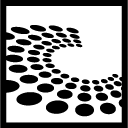26C3 - 26C3 1.15
26th Chaos Communication Congress
Here be dragons
| Referenten | |
|---|---|
|
|
Cristiano Marinho |
|
|
Helena Klang |
| Programm | |
|---|---|
| Tag | Day 2 - 2009-12-28 |
| Raum | Saal2 |
| Beginn | 16:00 |
| Dauer | 01:00 |
| Info | |
| ID | 3592 |
| Veranstaltungstyp | Vortrag |
| Track | Society |
| Sprache der Veranstaltung | englisch |
| Feedback | |
|---|---|
|
Haben Sie diese Veranstaltung besucht? Feedback abgeben |
Cybernetic Cannibalism
Why is Brazil the country of the future?

What is there in common between The Cannibalist Manifesto, written by the Brazilian poet Oswald de Andrade, in 1928, and online file sharing in the 21st century? What is the cultural diversity of Brazil – a society in constant formation – able to offer us to analyze the remix culture in the digital age? This work aim to investigate why is Brazil’s culture revealed as an inspiration for concepts as Free Culture and how the country was transformed in a laboratory of experimentation of new roads for the intellectual property debate.
“Only the cannibalism unites us. Socially. Economically. Philosophically.” This statement of Oswald de Andrade (1890 - 1954) was published in The Cannibalist Manifesto* , in 1928, six years after the Semana de Arte Moderna [Modern Art Week], landmark of the Brazilian modernist movement. In the Manifesto, Andrade recounts the history of the Brazilian civilization by means of well sharp metaphors and affirms Brazil’s vocation for cultural cannibalism: “I am only interested in what is not mine. Law of Man. Law of the Cannibal"
The poet afirms that the roots of the Brazilian people are found in the mixture between primitive cultures (Amerindian and African) and European heritage. But, it’s not a matter of extermination or annulment of one by the other. According to the native culture, the cannibalism is an incorporation tactic of the qualities of the one that is eaten. Thus for Oswald, the primitive cannibalism would be a form of critical swallowing of another, the modern one, the civilized. “I asked a man what was the law. He answered me that it was the assurance of the full exercise of possibilities. That man was called Galli Mathias. I ate him.” For him, only the cannibalism would be capable of extract good parts of the civilized world in a process that he called Caraíba Revolution, when the mixture of the Indian and the white man would arise the new “technologised barbarian” man: "Tupy* , or not tupy, that is the question."
What are the youths of all countries around the planet doing with the digital technology today? We eat, and we eat a lot. We eat the songs of our idols vomit news creations and spread in the net. We eat images from media, we appropriate it, criticize it and subvert it. The bricolage, mash-up or remix techniques presented in the post-modern culture, are nothing more than cybernetic cannibalism. For Lawrence Lessig (2007), “we could describe it using modern computer terminology as kind of read-write culture. It’s a culture where people participate in the creation and in the re-creation of their culture. In that sense is read-write”.
From the Andrade’s cannibalism concept through ideas of authors like Lessig, Lev Manovich (Russia), Steven Jonhson (US), Massimo Canevacci (Italy), Hermano Vianna (Brazil) and creators like Gilberto Gil (Brazil) and Djs form Rio’s favelas, this work is going to analyze how the remix nature of the Brazilian culture is reflected in the practices of knowledge-sharing and in the public policies here developed. The goal is to contribute for the debate of intellectual propriety not only in Brazil but in the digital culture society
*The Cannibalist Manifesto (Manifesto antropofágico) was published in the first edition of the Revista de Antropofagia, the vehicle for the Brazilian Cannibalist movement. All Andrade quotes in this proposal are from the same text. **That’s an Oswald joke with the word tupy, which is the native language, and the expression “to be”, both sounds the same in Latin phonetics.
